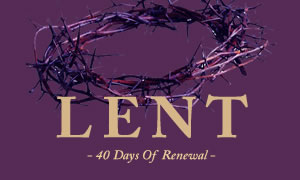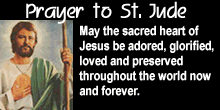


 What really happens to us when we receive Holy Communion? Why do we call the eucharistic presence “real,” and how does it make a difference in our lives? Discover the answers to these and other crucial questions
What really happens to us when we receive Holy Communion? Why do we call the eucharistic presence “real,” and how does it make a difference in our lives? Discover the answers to these and other crucial questions
What do we mean by “presence”?
In its most general sense, presence means being with another. We all experience presence in several familiar ways. It might be local, when we are in the same physical place as another. It can also be temporal, when we are with another at the same time. Local and temporal presence usually go together, but sometimes we can be temporally present to another without being physically with them, for example when talking over the phone or via the Internet. A third kind of presence might be called personal — how we experience “being with” another person — even when that person is not physically with us but is with us through our memory, imagination, or emotions.
Why is God present to us?
The only explanation is that God loves us and wants to be in a relationship with us. Like every personal relationship, the partners freely choose not just to be present locally or temporally, but also to open up their inner selves to one another through communication that leads to deeper communion. God chooses to be with us so that we can participate in God’s own life and so live beyond our death in an eternal life of loving relationship. By sharing in the intimate communion of Christ in the Eucharist, we nourish ourselves and become united to God for eternal life.
How do the sacraments reveal God’s presence?
The sacraments are ritual celebrations through which we actually experience the power of God present with us. Through the sacramental words and actions, God acting in Christ through the power of the Holy Spirit actually brings about what the signs represent. The sacraments are not only signs of our salvation but bring about the realities they symbolize.
Can you explain how God is present with us in the Eucharist?
No. Explaining how God is present to us is impossible for it is a theological mystery, in the strict sense. The idea of mystery, as used by theologians, identifies a reality that we affirm through faith to be true but which we cannot adequately explain. The Christian mysteries of faith identify such realities as the Trinity (one divine reality that is at once three distinct persons), the Incarnation (Jesus who is truly both divine and human), and Jesus’ Real Presence with us as the eucharistic bread and wine.
But don’t we have doctrines that explain these mysteries?
Not really. Doctrines do not really explain these mysteries — nothing can explain them completely. But doctrines offer theological guidelines for thinking and talking about these unique mysteries of faith.
But aren’t these doctrines the basis of our faith?
No, the basis of our faith is the mystery itself. The doctrines help us to understand and talk about the mystery, but they are not the mystery. Doctrine about the Real Presence concerns how best to think and talk about this mystery.
imagePhoto from photos.com


I have been thinking a great deal about my experience at Reconciliation this past Saturday. I felt an intense and unexplainable urge to go and confess my sins when I woke up that morning. I try to go every six weeks or so, but this was no routine visit to the priest for me. I needed to unburden myself of the numerous venial sins I had committed since I last participated in this Sacrament.
Purest Gold: God's Refining Fire in our Lives »
After salvation, many young Christians wonder if there's anything more to their newfound faith than just the security blanket of "being a Christian." Time and time again, God shows himself as a "refiner," and our lives are as gold. God started leading me in this study to understand what He was doing in my life, as well as in the lives of others.
Picking up my pen to write this column, I couldn’t imagine how time flies. Since the last publication of this column I have gone through a lot, especially the loss of my dear mother to whom I dedicate this article. Not only her, but seems I lost a whole generation of my close family.
How to Achieve Business Excellence »
“Do you see a man who excels in his work? He will stand before Kings; He will not stand before unknown men.” Proverbs 22:29
Spiritual Development for our Youth »
Most of us youth in today's fast moving world are easily thrown off by difficulties and worries.
The theme of conversion is a thread that runs all through Lent, but conversion takes on different aspects throughout the phases of Lent. The first two and a half weeks focused on the interior turning of hearts; the liturgy urges the faithful to reflect and examine consciences thoroughly.
Saint Josephine Bakhita »
Feast Day: February 8
Patron Saint Of: Sudan
Saint Josephine Margaret Bakhita was born around 1869 in the village of Olgossa in the Darfur region of Sudan. She was a member of the Daju people and her uncle was a tribal chief. Due to her family lineage, she grew up happy and relatively prosperous, saying that as a child, she did not know suffering.
Catholics Must Fast More Intensely This Lent»
The Norbertine Canons of St. Michael's Abbey have created this digital Lenten retreat so that you can journey through this holy season alongside them. If you want to have one of your best Lenten seasons yet, join us in our Lenten Program "The Great Fast" - https://theabbotscircle.com/the-great-fast-join
When Your Faith Is Put to the Test - Bishop Barron's Sunday Sermon»
Friends, we come now to the Second Sunday of Lent, and we’re on both dangerous and very holy ground with the first reading from the twenty-second chapter of Genesis. The ancient Israelites referred to it as the “Akedah,” which means the “binding”: Abraham binds and is ready to sacrifice Isaac at God’s command.

Copyright © 2002-2024 THE BEACON INTERNATIONAL CATHOLIC MAGAZINE. All rights reserved.
another mc.rufus interactive web design